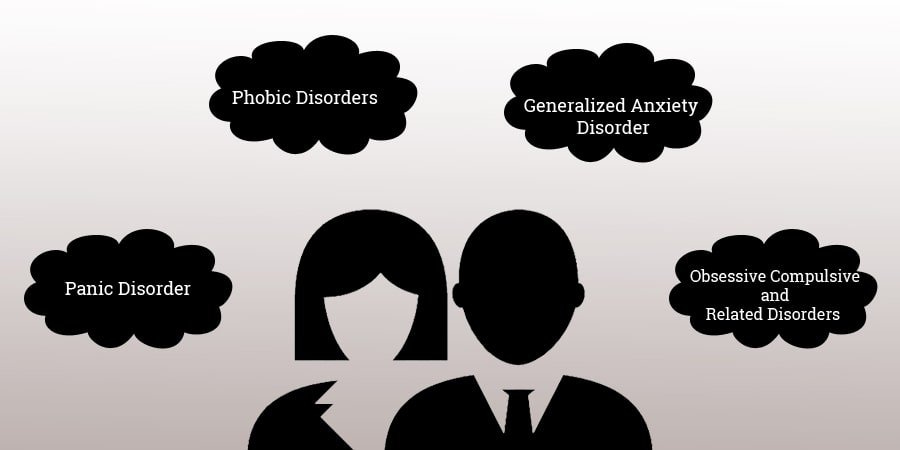Anxiety Disorders Symptoms and Causes

Anxiety disorders affect millions worldwide, often causing overwhelming fear and worry that disrupt daily life. Imagine waking up each day with a tight knot in your stomach, constantly anticipating something bad will happen. This relentless cycle of anxiety can lead to physical symptoms like a rapid heartbeat, sweating, and fatigue, making even the simplest tasks feel daunting. Understanding these symptoms is the first step toward reclaiming control and finding effective ways to cope.
Anxiety disorders result from a complex interplay of factors. Genetics, brain chemistry, and environmental influences all play a role in how anxiety develops. Stressful life events, such as trauma or significant changes, can trigger these disorders in vulnerable individuals. Exploring these underlying causes helps us better understand this common yet often misunderstood condition, paving the way for compassion and support for those who struggle with anxiety.
Symptoms of Anxiety Disorders
Anxiety manifests through various physical, behavioral, and cognitive symptoms.
Physical Symptoms
Jitteriness, trembling, tightness in the chest or stomach, excessive sweating, lightheadedness, dry mouth, racing heart, nausea, and cold hands.
Behavioral Symptoms
Avoidance actions, clinging behaviors, and agitated or tense behavior.
Cognitive Symptoms
Persistent worry about the future, preoccupation with bodily sensations, fear of losing control, recurring disturbing thoughts, difficulty concentrating, and a sense of things being out of control.
While not everyone with anxiety experiences all these symptoms, it’s clear why anxiety can be so distressing. According to the Diagnostic and Statistical Manual of Mental Disorders (DSM), there are three main types of anxiety disorders: panic disorder, phobic disorders, and generalized anxiety disorder.
Causes of Anxiety Disorders
Anxiety disorders stem from a combination of psychological, biological, and unique individual factors.
Chemical Imbalance
Long-term or severe stress can disrupt the chemical balance that regulates mood, leading to anxiety disorders.
Environmental Factors
Traumatic events can trigger anxiety disorders, especially in those with a genetic predisposition.
Heredity
Anxiety can be inherited, much like physical traits. Children may learn anxious behaviors from their parents.
How Anxiety Disorders Develop
Many people with anxiety disorders can trace their condition to a period of tension or stress in their lives. Some may feel they have always been prone to worry. Certain life stages, like adolescence or early adulthood, are particularly vulnerable times. Stressful conditions can affect anyone at any time, leading to anxiety. The Holmes Rahe Scale, which measures stress levels, shows that even positive events like marriage can cause significant stress, potentially leading to anxiety problems.
Types of Anxiety Disorders
Panic Disorder
It is characterized by frequent, unexpected panic attacks with symptoms like rapid heartbeat, shortness of breath, and dizziness. Cognitive-behavioral therapy (CBT) and medication are effective treatments.
Phobic Disorders
It is unreasonable fears about specific objects or situations, such as spiders, heights, or public places. Learning-based therapies, cognitive therapy, and medication are common treatments.
Generalized Anxiety Disorder (GAD)
It is continuous anxiety not linked to specific situations. Treatments include CBT and medications like paroxetine.
Obsessive-Compulsive and Related Disorders
It includes OCD, body dysmorphic disorder, and hoarding disorder. Treatments involve exposure and response prevention, cognitive therapy, and SSRI antidepressants.
Conclusion
Anxiety disorders are complex and multifaceted, affecting millions of people worldwide. They arise from a blend of genetic, environmental, and psychological factors. Recognizing the symptoms and understanding the causes are crucial steps in managing and treating anxiety. With compassion, effective therapies, and support, those struggling with anxiety can find relief and regain control over their lives